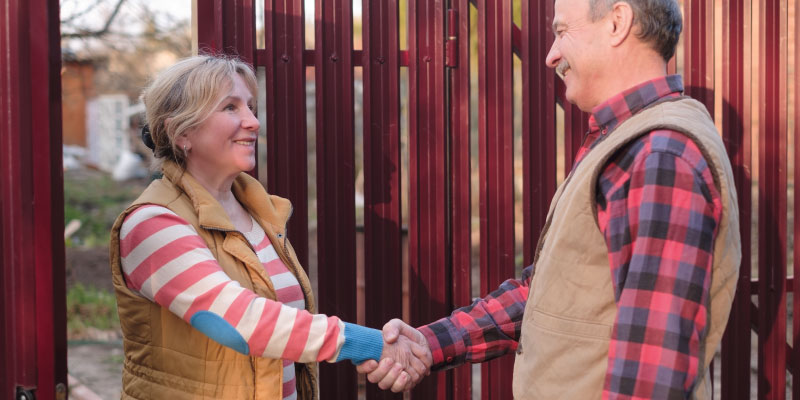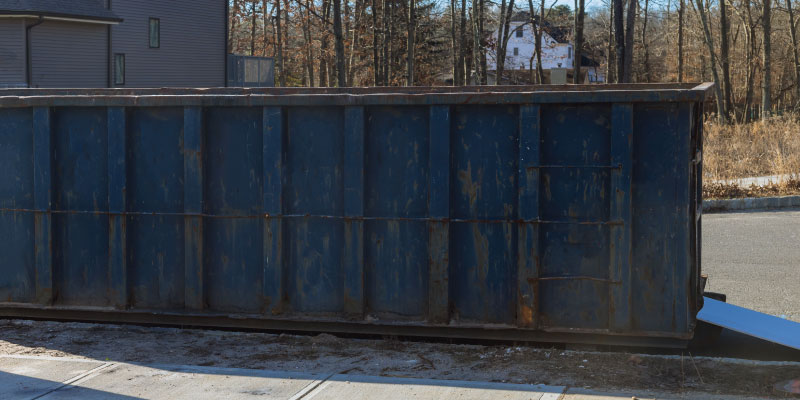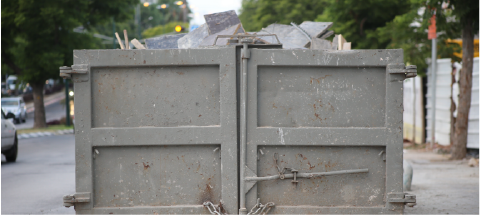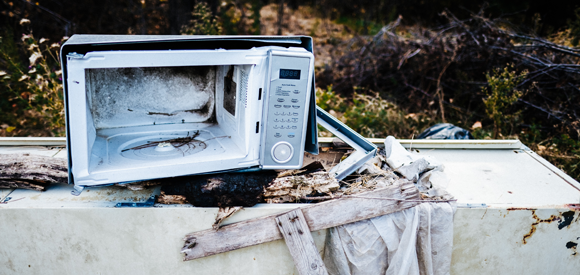
Updated October 26, 2023
In our fast-paced, consumer-driven world, waste generation is at an all-time high.
According to the World Bank, the global population generates over 2 billion tons of municipal solid waste annually, a number projected to rise substantially in the coming years.
While recycling, reducing, and reusing are all effective ways to combat this issue, there is another, less-discussed solution that is gaining popularity: neighborly dumpster sharing.
This innovative approach is not only environmentally friendly but also fosters a sense of community and resourcefulness while also saving individuals money.
In this article, we will explore the concept of dumpster sharing, its benefits and challenges, and how it is changing the way we think about waste disposal.
Jump to:
- What Is Dumpster Sharing?
- How Does Dumpster Sharing Work?
- What Are the Benefits of Dumpster Sharing?
- What Are the Challenges of Dumpster Sharing?
Find dumpster rental services near you
Dumpster Sharing: What Is It?
Dumpster sharing, sometimes known as community waste exchange or waste-sharing programs, involves neighbors or communities coming together to share waste disposal resources.
Instead of each household or business having its own dumpster or waste management service, people pool their resources and share a communal dumpster.
Many neighborhoods or cities host free disposal events called "dumpster days" in which local residents are allowed to make use of a dumpster provided by the city. This is becoming more and more common, but is still not an option for everyone.
Another way to share dumpsters with neighbors is to coordinate the rental together, split the costs, and split the space within the dumpster so you and your neighbors can get rid of the junk you have without paying for more dumpster than you need.
This approach promotes the efficient use of resources as well as a sense of togetherness within your community.
How Dumpster Sharing Works
Dumpster sharing can take various forms, depending on the community's needs and preferences. Here's a basic outline of how it typically works:
-
Community Agreement: Interested parties in a neighborhood or community agree to participate in dumpster sharing. They discuss the logistics, responsibilities, and guidelines for the shared dumpster.
-
Dumpster Location: A suitable location for the communal dumpster is chosen, usually in a central, easily accessible spot among those taking part in the rental.
-
Waste Sorting: Participants are educated about the dumpster company's dumpster loading rules as well as proper waste sorting and disposal practices to ensure that the dumpster is used properly and no additional fees are incurred.
-
Cost Sharing: Costs for the dumpster rental are shared among participants. These costs are often significantly lower than what each individual or business would pay for dumpster services themselves.
-
Scheduling: A schedule is established for delivery and pick-up. Participants coordinate times that work best for loading their items in the dumpster, and the dumpster is hauled away and emptied when full or the dumpster rental period is over.
For example, say you and five neighborhood houses agree to rent a 30 yard dumpster for $450. Each house will have roughly six cubic yards of space to accommodate their junk, and each house will pay $90 of the total cost. This cost is significantly less than would be paid if each individual rented a 10 yard dumpster—the most common small dumpster size.
The Benefits of Dumpster Sharing

Waste Reduction
One of the most significant advantages of dumpster sharing is the reduction in waste in private and public spaces.
When people share a single dumpster, they not only reduce their waste but they also reduce gas consumption and emissions by using a single dumpster rather than multiple dumpsters.
Cost Savings
Dumpster sharing can be financially beneficial for everyone involved. By sharing the costs of waste disposal, individuals can save on their waste management expenses. This is especially advantageous with inflation rates going up.
Read more: Dumpster Rental Price Guide: How to Lower Your Cost to Rent a Dumpster
Community Building
Dumpster sharing fosters a strong sense of community and closeness with your neighbors. It encourages communication and collaboration among neighbors, helping to build connections and relationships with those physically close to you. This sense of community can benefit the neighborhood as a whole, not just increasing your sense of community but also neighborhood safety.
Environmental Impact
As mentioned, sharing a dumpster reduces the need for multiple dumpster trucks to visit a single neighborhood. This cuts down on fuel consumption, greenhouse gas emissions, and overall environmental impact. It's a more sustainable approach to bulk waste management.
Resource Efficiency
Dumpster sharing promotes the efficient use of resources. Instead of having multiple dumpsters that are only partially full, a shared dumpster is more likely to be used to its full capacity. This optimizes resource utilization.
Challenges and Considerations
While dumpster sharing is an innovative and beneficial approach to waste management, there are some challenges and considerations to keep in mind:
-
Community Commitment: For dumpster sharing to work effectively, there must be a high level of community commitment and care. Participants need to be responsible for waste sorting and following the established dumpster guidelines. If one person doesn't follow the rules, everyone could be stuck paying the fees incurred.
-
Regulations: Depending on your location, there may be local regulations or permits required. It's important to check with local authorities and comply with any legal requirements.
-
Aesthetics: Proper maintenance and cleanliness of the shared dumpster are crucial to prevent unpleasant odors or pest infestations. Those sharing the dumpster should establish rules for keeping the dumpster clean and as well-maintained as possible while it's in use.
-
Privacy Concerns: Some individuals may be uncomfortable with the idea of having neighbors come onto their property to dispose of waste, or perhaps the idea of your neighbor seeing the items you throw away is embarrassing or concerning to you. Open and honest communication can help address these concerns, ensuring no one's privacy is violated.
Conclusion
Dumpster sharing is an approach to waste management that offers numerous benefits for communities and the environment. It reduces waste in public and private spaces, saves money, builds a sense of community, and minimizes environmental impact.
While it may not be suitable for all situations, it's an idea worth exploring for those looking to reduce their disposal costs, decrease their ecological footprint, and build stronger neighborhood connections. In a world where waste continues to be a growing problem, embracing the art of neighborly dumpster sharing may be a step in the right direction.
Hometown is here to assist you and your neighbors when it comes time to rent a dumpster. We make it easy to request multiple quotes so you can adequately compare them, get answers to common dumpster rental questions, and be sure you hire the right dumpster rental company for your dumpster.


